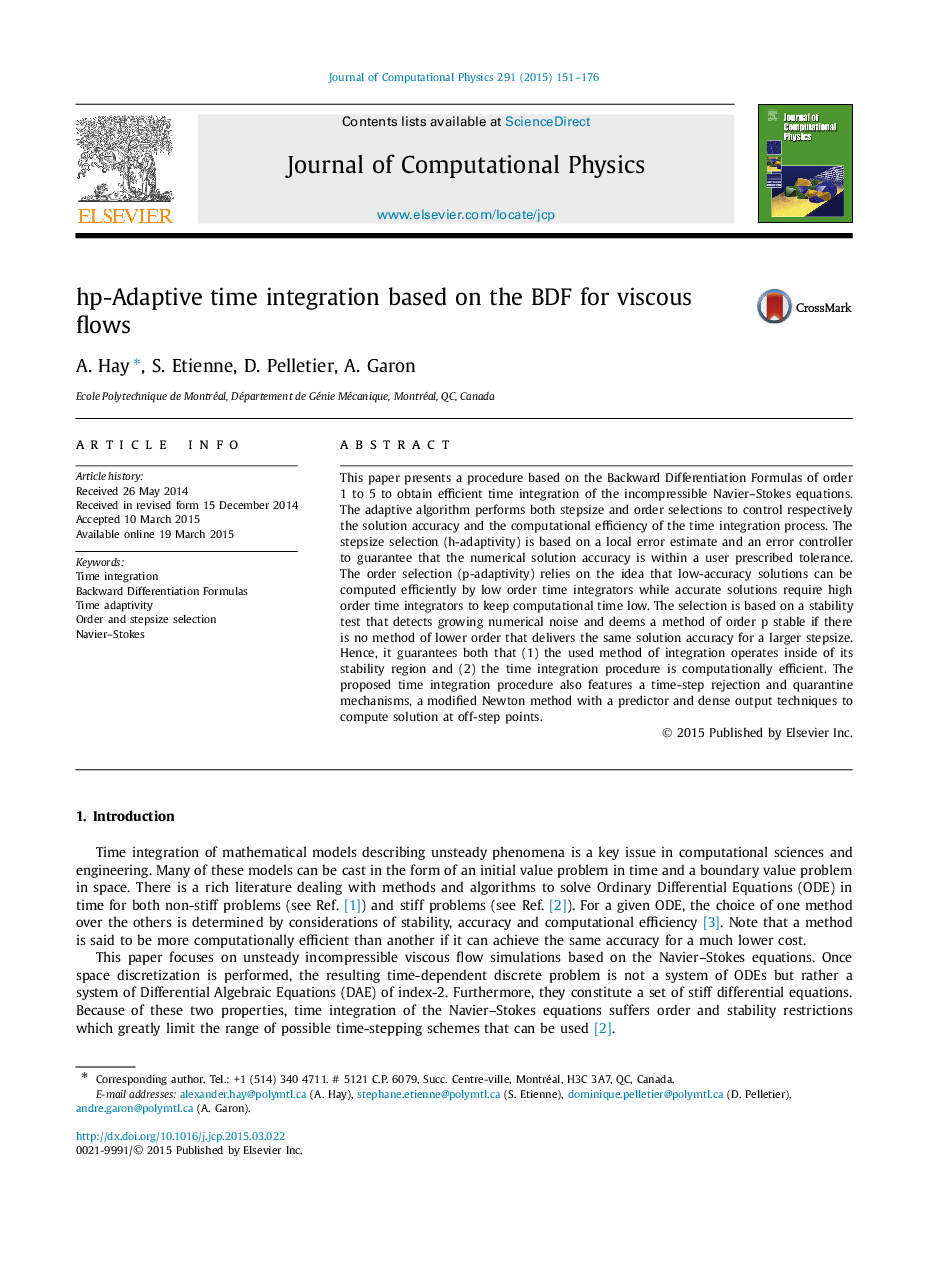| Article ID | Journal | Published Year | Pages | File Type |
|---|---|---|---|---|
| 6931476 | Journal of Computational Physics | 2015 | 26 Pages |
Abstract
This paper presents a procedure based on the Backward Differentiation Formulas of order 1 to 5 to obtain efficient time integration of the incompressible Navier-Stokes equations. The adaptive algorithm performs both stepsize and order selections to control respectively the solution accuracy and the computational efficiency of the time integration process. The stepsize selection (h-adaptivity) is based on a local error estimate and an error controller to guarantee that the numerical solution accuracy is within a user prescribed tolerance. The order selection (p-adaptivity) relies on the idea that low-accuracy solutions can be computed efficiently by low order time integrators while accurate solutions require high order time integrators to keep computational time low. The selection is based on a stability test that detects growing numerical noise and deems a method of order p stable if there is no method of lower order that delivers the same solution accuracy for a larger stepsize. Hence, it guarantees both that (1) the used method of integration operates inside of its stability region and (2) the time integration procedure is computationally efficient. The proposed time integration procedure also features a time-step rejection and quarantine mechanisms, a modified Newton method with a predictor and dense output techniques to compute solution at off-step points.
Related Topics
Physical Sciences and Engineering
Computer Science
Computer Science Applications
Authors
A. Hay, S. Etienne, D. Pelletier, A. Garon,
